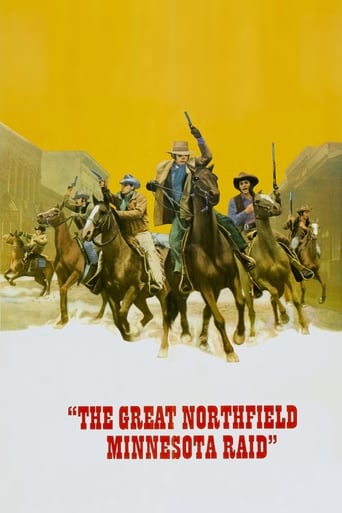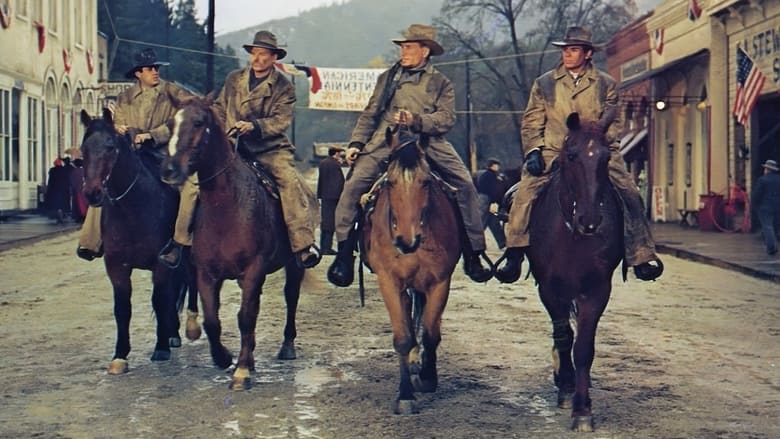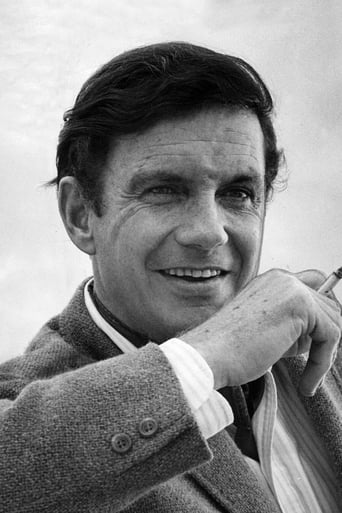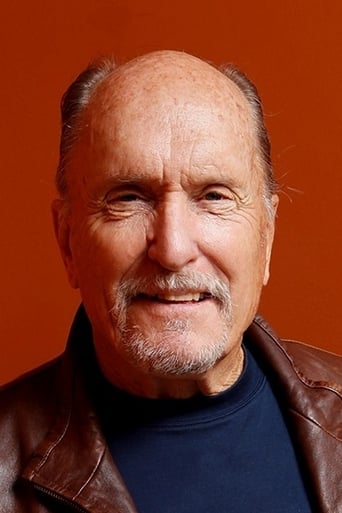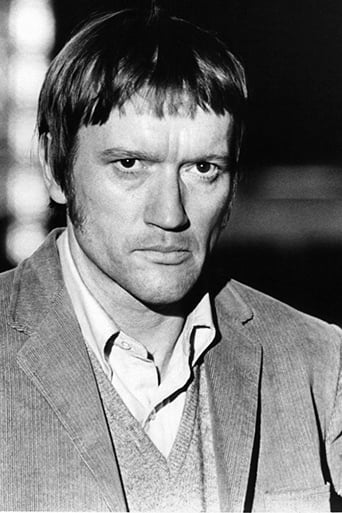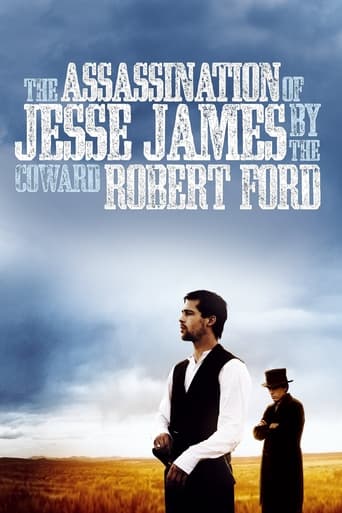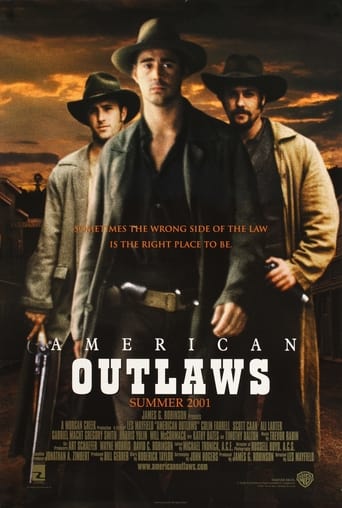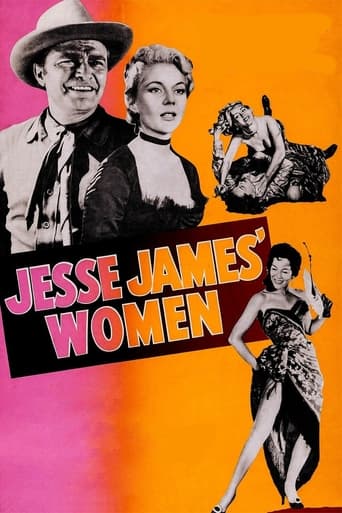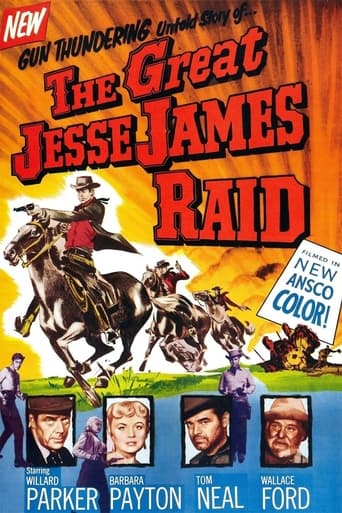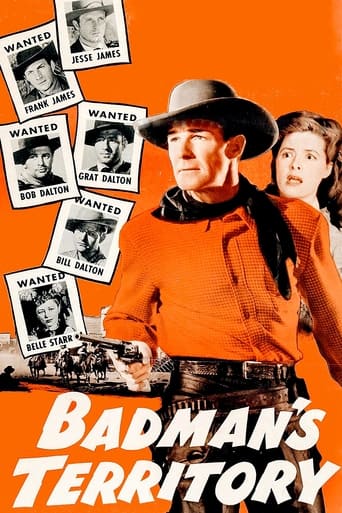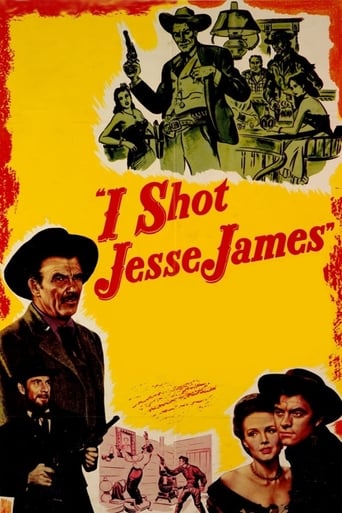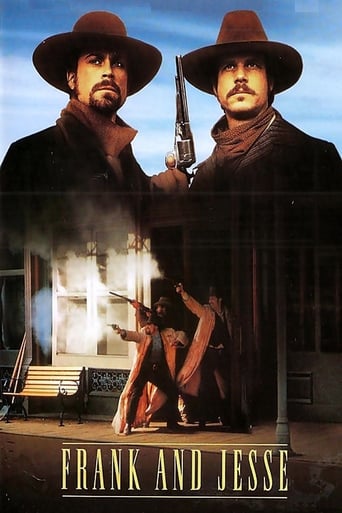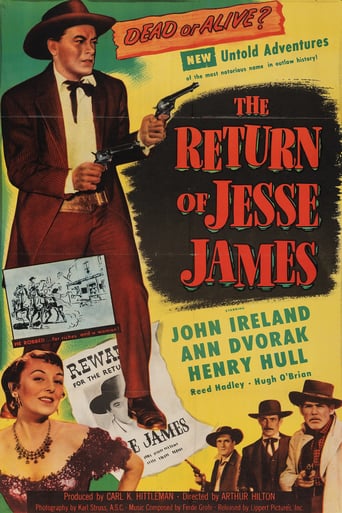The Great Northfield Minnesota Raid (1972)
The gangs of Jesse James and Cole Younger join forces to rob the First National Bank in Northfield, Minnesota, but things do not go as planned.
Watch Trailer
Cast
Similar titles
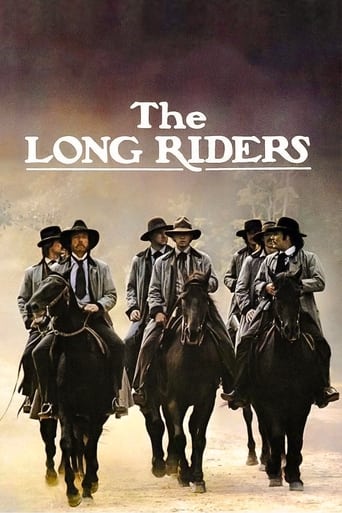
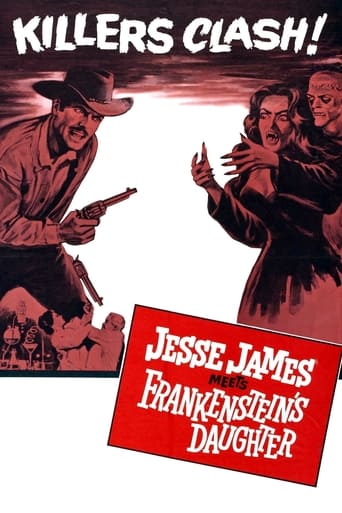
Reviews
Really Surprised!
It is a performances centric movie
Boring, over-political, tech fuzed mess
Fun premise, good actors, bad writing. This film seemed to have potential at the beginning but it quickly devolves into a trite action film. Ultimately it's very boring.
There are a few western staples in 'The Great Northfield, Minnesota Raid': the last mission, the friendly whorehouse; but compared with most films of this type, it's a plausible and honest portrait of the life of a criminal gang, and set in the relatively lush lands of the near west instead of the dry high plains further west. In fact, it's based on the story of a real gang, one that featured the legendary Jesse James, and it's refreshing to see this character demystified: he doesn't even take top billing. However, the plot never quite comes to life, and perhaps more could have been made of the gang's origins in the aftermath of the civil war. But like Altman's superior 'McCabe and Mrs. Miller', made at around the same time, the film deserves credit for telling its own tale, instead of merely re-hashing the clichés of the genre.
There have been numerous films about Jesse James, most notably Sam Fuller's "I Shot Jesse James", Nick Ray's "The True Story of Jesse James", Kaufman's "The Great Northfield Minnesota Raid", Hill's "The Long Riders" and Dominik's "The Assassination of Jesse James by the Coward Robert Ford".Being the most recent, Dominik's film gets all the attention, but Kaufman's and Hill's deserve just as much notice. Though released in the 1970s, Kaufman's film must be watched through the lens of his astronaut epic, "The Right Stuff", both films offering an absurdist take on progress and frontier pushing. Here, Jesse is a confused charlatan and the gang's criminality is seen as being outdated in the face of banking cartels, protection rackets and business scams. In this new world, the business man is the new criminal, violence now taking the form of organised sports, rail barons and profit margins. "How much you think that'll fetch?" one man remarks, as he tries to figure out whether he can make more profits selling earrings in pairs or singles. Stuffed dolls are similarly traded for money, whilst steam engines and horseless buggies are treated as, not a form of technological progress, but a form of capitalist spectacle which pushes Jesse and his gang further and further into extinction. Indeed, it is a steam piano constructed to attract people to a bank, which ultimately gets Jesse's gang killed.The gang itself is split into two groups. Those who follow Cole Younger and those who follow Jesse James. Jesse embodies a kind of no-nonsense criminal psychopathy, stealing and killing and forever unable to live up to his romantic myth (he pretends to receive messages from God, but nobody believes him). Cole, in contrast, tries to play the game by the banks' rules, using guile, cunning and elaborate schemes. Significantly, Cole's plan backfires and he dies, whilst the lawless Jesse, a product of a different age, rides comically off into the sunset. Like Altman's "Thieves Like Us", the film subversively portrays its gangs, not as noble Robin Hoods stealing from corporate fat cats, but part of the same all inclusive racket.Walter Hill's "The Long Riders" is a different sort of beast altogether. This is a fast paced action movie, the "legendary moments" in the life of Jesse James downplayed in favour for ambiance and texture. Town dances, chirping crickets, women being pushed on swings, touching romantic relationships with whores...this is film which serves up a certain air of melancholy, before launching into a series of staggeringly violent action set pieces. Hill's gangsters are not wild-eyed maniacs but disenfranchised criminals looking to score easy cash so that they can retire to some country paradise. In other words, it's a Michael Mann macho poem with the violence of Walter Hill's mentor, Sam Peckinpah, grafted on.Hill's film also revolves around a cat and mouse feud between Jesse and the Pinkerton Detective Agency, a group of lawmen working for the banks and railroads. In an effort to humanise the gang, the film paints these lawmen as murderous brutes who kill innocents and set homes ablaze. These, of course, are narrative tactics used to convince us that Jesse and his boys are innocent of any wrong doings and that they were merely provoked by violent authorities. Andrew Dominik's "The Assassination of Jesse James by the Coward Robert Ford", in contrast, is implicitly about celebrity. Here, Jesse's gang are mythologized through legend and media exposure, and it is this which curses them. Jesse himself is killed, not by Robert Ford, but by celebrity itself. The film is thus about, not only looking, but being looked down upon, looked up at, and having perceptions projected upon you. Jesse's death, in which looking at a picture literally kills him, encapsulates all these themes. It is Jesse's own gaze, his aloof attitude toward Ford, which causes Ford's worshipful stare to be corrupted, but more importantly, co-oped by Pinkerton. Here, celebrity and mythology bulldoze truths, and court death by assuming a kind of superiority. Of course death, rather than debunking myths, tends to reinforce them further.But while all three films go off on their own interesting tangents, they make a mistake which has been around since Henry Fonda's 1939 film, "Jesse James". These films ignore history and turn Jesse in a superstar, a Robin Hood, a pretty boy rogue, when this image was wholly invented by John Edwards, a racist and pro Confederate journalist who wanted to create a heroic figure to help rally people against the Union.At the time, the state of Missouri belonged to the Confederates, whereas the state of Kansas was held by the Union. The two states fought each other fiercely, killing civilians, burning houses and committing various other war crimes. Jesse James, following in his brother's footsteps, joined the Confederates, fought with them for several years and then left the army to form a robbery gang with several soldiers. They hit trains and banks and kept the loot, but because banks and railroads were symbols of the Union States (who were forcing farmers, civilians etc to buy Federal dollars), it became easy for Confederate supporters to turn Jesse into a kind of rebel figure.Jesse then began to milk this image, selling himself as an altruistic warrior who fought evil Yankee rail barons for Southern honour. In reality, far from being the last hurrah of the Confederate cause, Jesse was a cold hearted guy who fought for the preservation of slavery, robbed trains dressed as the KKK and kept all the loot for him and his gang. Of course none of the Jesse James films deal with this, even Dominik's, which is specifically about the allure and falsity of celebrity.7.9/10 - Interesting.
In this film the real brain of Jesse James's gang is Cole Younger(Clff Robertson). Jesse(Robert Duvall) is a very mean guy, who does not care much for women and his brother Frank is just his yes man. Robertson is excellent as Cole Younger, he looks like a heavy man, which Cole really was, he is intelligent and human. When he hears that amnesty was given to the gang, he goes to Northfield to stop Jesse from robbing the bank, but on the way he learns that it was denied, so he decides to go along with the raid. When he learns that there is almost no money in the bank because people would rather keep it at home, he conceives a plan with the bank's owner for everybody to get scared and make deposits. There is a quite comical baseball game between St Paul and Northfield where Younger meets the town's most important persons. This version of the James and Younger's story seems to be very far from what really happened, but I enjoyed every minute of it.
I always cringe when someone claims a particular substandard movie is the worst ever, but I am genuinely tempted to make such a claim for "The Great Northfield, Minnesota Raid". While Cliff Robertson is fine as Cole Younger the rest of the cast is pretty much hopeless (give Robert Duval some credit for expending a lot of energy as he chews the scenery to an unimaginable degree).The real problem is the hopeless historical distortion and the early 1970's counterculture revision of history. This is especially unforgivable because the actual events were more interesting that the contrived garbage shown in the movie; these were portrayed a little more accurately in "The Long Riders", a better film. The "actual" events were fascinating so distortion and silly embellishment are totally unnecessary. If they can't provide a reasonably accurate retelling of the story then they should change the names and call it by its right name-"fiction".A genuine piece of crap, if there is any justice everyone associated with this mess is or soon will be roasting in hell.
